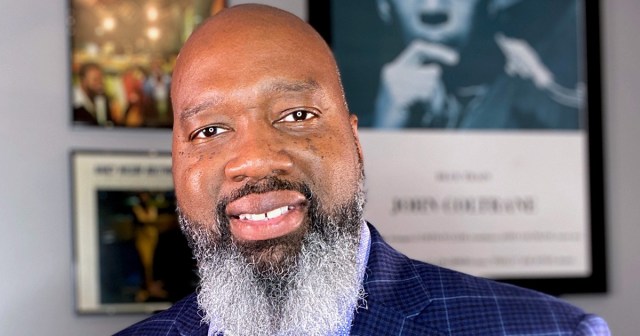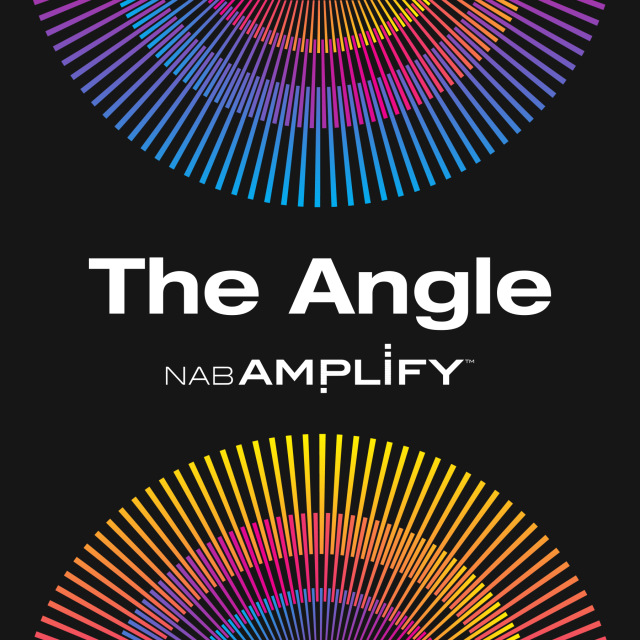
Generative AI “is nothing more than mathematics, probability, and statistics,” I2A2 President & CEO Renard Jenkins said in a recent keynote, attempting to assuage those who might fear that AI will transform Hollywood’s “dream factory” into “a warehouse of nightmares.” Watch his full presentation below.
Jenkins believes that the transformational nature of this technology is a foregone conclusion for Media & Entertainment.
“I want to get us to the point where we understand that working with AI is going to be a part of our life. And to be honest, it was a part of our life long before ChatGPT,” he said.

“AI is a part of what we’re doing. But it doesn’t have to take over what we’re doing,” Jenkins continued, joking that he intends to make sure he understands how the “robots” work so that he’s able to turn them off should that be necessary in a hypothetical dystopia.
In addition to his role at the consultancy, Jenkins also serves as president of the Society of Motion Picture and Television Engineers and is an alum of both PBS and WarnerMedia, bona fides that enable him to speak to both the technological applications and the financial ramifications of GenAI.
“Every part of the [content creation and distribution] process will be affected,” Jenkins said. “But don’t think about it in the sense of replacement. Think about it in the sense of enhancement.”

Jenkins pointed out that the AI revolution has been enabled and accelerated by other buzzy compute technologies coming of age. For example, Jenkins said, in post, “you’re using game engines, and you’re using artificial intelligence as a part of the VFX process.”
Additionally, he said that Hollywood needs to remember that AI is changing how content is distributed and “how people are consuming it. These things are also changing. Neuralink, anybody?”
Blockchain is back in the forefront of the conversation, he also noted, useful for distribution and monetization opportunities.
AI and Your Bottom Line
Jenkins also sought to dispel the myth that generative AI will facilitate cost-cutting: “If there are any CFOs in here, I’m going to make you angry because I’m going to tell you that I’m not going to save you money.”
Rather, Jenkins said, AI is “going to save you time. Now what you do with that time, that is up to you. And hopefully, that’s up to your creatives. Because the more time that you give a creative — we all know if we worked in post-production — the more time they’re going to take.”
True Lies showrunner Matt Nix, who was speaking on a separate panel at the event, as IndieWire’s Brian Welk reports, remarked: “In the arms race of Hollywood, studios are very excited about saving money and firing a bunch of people, but I think what they’re forgetting is that has literally never worked in the history of mankind.
“Not one time has a new technology come out and everyone said, ‘We’ll just try not to do anything new just to save money.’”
Nix also pointed out the inconsistencies underlying some of these fears: “It’s always a pattern that goes, ‘AI is utterly useless garbage that’s going to take all of our jobs,’” he told Welk. “You kind of have to choose one or the other. Guys, if shitty scripts were that valuable, we’d all be sitting on a gold mine.”
M&E Job Security
Jenkins argued that in some ways AI is more ready to take over some traditional C-suite roles than creative tasks: “I can build an algorithm that would predict better than a CFO. I can build an algorithm that would make better decisions and make Wall Street a lot happier than a CEO.” (He’s not alone in thinking that.)
But, at least in the near term, Jenkins cautions, “You are probably not going to release people into the wild. You’re going to learn how to retrain people, and then you’re going to actually probably have to throw a little bit more money at them to retain them.”
Despite Jenkins’ optimism, Welk writes: “AI does have the potential to wipe out jobs and disrupt Hollywood’s workflow. During last summer’s WGA strike, writers demanded that AI-generated material can’t be handed to a writer for punching up or replace the act of writing altogether; actors on strike fought for protection and compensation when using digital replicas.”
READ MORE: Will AI Make Hollywood Production Cheaper? Don’t Count on It (IndieWire)
Nix wasn’t the only speaker to disagree with Jenkins’ prediction that humans will remain central to the generative AI proposition.
Forbes columnist Charlie Fink reports that Showrunner’s Edward Saatchi, who spoke on a different panel, indicated that he “believes legitimate, original entertainment can be crowdsourced, and episodes written by AI with minimal text prompts. There could be channels of AI created content that prompts itself.”
Fink notes that Saatchi’s position seems less far-fetched when you recall the success of The Golden Key at SXSW. Why wouldn’t a streaming service or YouTube channel be possible in the not-so-distant future?
READ MORE: Meet Showrunner, The ‘Netflix Of AI’ That Turns Viewers Into TV Show Creators (Forbes)
Despite myriad fears over the use of generative AI in Hollywood, it seems as if it is only a matter of time before studios begin employing it.
READ MORE: ‘AI On The Lot’ Wraps Second Edition (Forbes)
READ MORE: ‘AI On The Lot’ Attendees Examine the Impact of New Technology and Tools on Entertainment Industry Jobs (Variety)

Why subscribe to The Angle?
Exclusive Insights: Get editorial roundups of the cutting-edge content that matters most.
Behind-the-Scenes Access: Peek behind the curtain with in-depth Q&As featuring industry experts and thought leaders.
Unparalleled Access: NAB Amplify is your digital hub for technology, trends, and insights unavailable anywhere else.
Join a community of professionals who are as passionate about the future of film, television, and digital storytelling as you are. Subscribe to The Angle today!



Discussion
Responses (1)